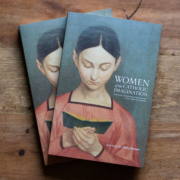“May we live long and die out”—this is the motto of the “Voluntary Human Extinction Movement” (VHEMT). This movement exhorts people to make a voluntary choice not to reproduce (or not to give birth to any more children, if they already have children), with the stated goal of bringing about the eventual extinction of the human race. VHEMT describes itself as “a movement advanced by people who care about life on planet Earth,” but its members obviously value nonhuman life far more than human life. Their website claims that “Gaia would be better off without humans” and that “phasing out the human species by voluntarily ceasing to breed will allow Earth’s biosphere to return to good health.” VEHMT describes their vision as follows:
The hopeful alternative to the extinction of millions of species of plants and animals is the voluntary extinction of one species: Homo sapiens . . . us. Each time another one of us decides to not add another one of us to the burgeoning billions already squatting on this ravaged planet, another ray of hope shines through the gloom. When every human chooses to stop breeding, Earth’s biosphere will be allowed to return to its former glory, and all remaining creatures will be free to live, die, evolve (if they believe in evolution), and will perhaps pass away, as so many of Nature’s “experiments” have done throughout the eons.
According to VHEMT, human beings were once “part of the ecosystem,” but we became “parasitic” when we developed agriculture and started to “exploit Nature” for our survival, becoming a “virtual exotic invader of Earth’s biosphere.” This group claims that for every child who is not born, as much as 58.6 tons of “carbon dioxide equivalent emissions” per year will be avoided.
VHEMT asserts that the “morally correct” and “responsible” choice is for human beings to stop reproducing entirely. In order to “honor” people who make this choice, the VHEMT website offers anyone who has chosen “permanent, surgical contraception (vasectomy, tubal ligation, hysterectomy, etc.),” including people who have already had children, the opportunity to download an animated gif representing a “Silver Snip Award.” The “Golden Snip Award” is reserved for those “brave pioneers” who have never had any children (note that the website refers to them as “childfree,” not childless) and who have chosen permanent, surgical contraception “in order to not create more Homo sapiens.”
The “value” of existence cannot be captured by a utilitarian calculus of pleasures and pains.
In reference to the Bible passage in which God tells Adam and Eve to “be fruitful and multiply” (Gen. 1:28), VEHMT makes the following statement: “We have been fruitful and multiplied, now it is time to mature and nurture.” In other words, we should “nurture” nonhuman life, but not the next generation of human beings, apparently. Instead of “Be fruitful and multiply” this group’s message to the human race is “Be sterile and subtract.”
Although much of the content on the VHEMT website focuses on the supposed “ecological benefits” of human extinction, it is clear that this movement overlaps considerably with the broader “anti-natalist” movement that has emerged in recent years, a movement that considers nonexistence to be preferable to existence. On their website, VHEMT quotes the following lines from a poem entitled “Morphine” by the German poet Heinrich Heine:
Sleep is good.
Death is better,
but the best is to have never been born.
Perhaps the foremost advocate of the anti-natalist movement is David Benatar, a philosopher at the University of Cape Town who wrote a book entitled Better Never to Have Been: The Harm of Coming Into Existence. Benatar tries to demonstrate that it is better never to have been born than to exist by arguing that there is a fundamental asymmetry between good and bad things in life, such as pleasure and pain. He asks us to consider two scenarios: scenario A, in which person X exists, and scenario B, in which person X has never existed. In scenario A, person X experiences some pleasure and also some pain in life; Benatar declares that the presence of pleasure is good and the presence of pain is bad, so X’s life is a mixture of both good and bad. In scenario B, X never has existed, so X never experiences pain, which Benatar says is good, because the absence of pain is good. X never experiences pleasure either, but instead of labeling this as “bad,” Benatar claims that the absence of pleasure is “not bad,” because for the absence of pleasure to be bad, someone would actually have to exist who is being deprived of that pleasure, and X does not exist and thus is not being “deprived.” Therefore, in Benatar’s purely utilitarian calculation, existence is a mixture of good and bad, whereas nonexistence is a mixture of good and “not bad,” making coming into existence always a “harm” and thereby making nonexistence preferable to existence and childlessness preferable to having children. In a rare interview, Benatar commented that “every couple, or every person, can decide not to have a child. That’s an immense amount of suffering that’s avoided, which is all to the good.”

There are several criticisms one can make of Benatar’s argument, but I will just mention a few here. First, even if one agrees, for the sake of discussion, to view the issue within the utilitarian framework assumed by Benatar, the calculation regarding pleasures and pains obviously needs to be more detailed than in the simple scenario that summarizes his argument. What is the relative quantity of pleasures and pains in X’s life in scenario A? And what is the quality (intensity, duration, etc.) of each of the pleasures and pains experienced by X? Some people may experience a preponderance of pleasure over pain in their lives, both in terms of quantity and quality, so wouldn’t the “balance sheet” of their pleasures and pains be more favorable than the “balance sheet” consisting of the so-called “good” of avoiding pain and the so-called “not bad” of not experiencing pleasure that Benatar claims is characteristic of nonexistence?
Second, one could counter Benatar by arguing that not all pain is entirely “bad,” as is assumed by his argument. For example, some types of pain can actually bring about good results, such as the pain of self-sacrifice chosen by loving parents on behalf of the well-being of their children, or the pain endured by a soldier fighting for the safety and protection of citizens of his country. Some types of “pain” can make us better people: more self-sacrificial, more loving, etc.
In both of those regards, Benatar’s argument is overly simplistic. But his argument is also highly reductionistic. The “value” of existence cannot be captured by a utilitarian calculus of pleasures and pains. Even within a materialist worldview, in which everything that exists is a random swirl of atoms (including us human beings), existence is still preferable to nonexistence. Isn’t it better to have existed and to experience life, consciousness, love, beauty, goodness, truth, learning, achievement, etc. than never to have existed? Benatar doesn’t think so. In response to this objection, he still frames his answer in terms of pleasure and pain, claiming that pain is worse than pleasure is good.
Contrast Benatar’s view with that of Alfred, Lord Tennyson, famously expressed in his poem “In Memoriam A. H. H.,” which he wrote in memory of his closest friend, who died at age 22:
I hold it true, whate’er befall;
I feel it, when I sorrow most;
’Tis better to have loved and lost
Than never to have loved at all.
Even if, as some materialists claim, “love” were merely a “biochemical epiphenomenon” (which it isn’t, but if it were), wouldn’t it still be better “to have loved and lost than never to have loved at all”? Wouldn’t it be better to have lived and “lost” than never to have lived at all? Wouldn’t it be better to give future generations of human beings the chance to live and love, even if this earthly life sometimes also involves loss and suffering? Yes, and even more so for those of us who firmly believe that God offers every single human being who comes into existence not “harm” but rather the inexpressible gift of sharing forever in the divine life and love. Which is the best possible reason to “be fruitful and multiply.”
